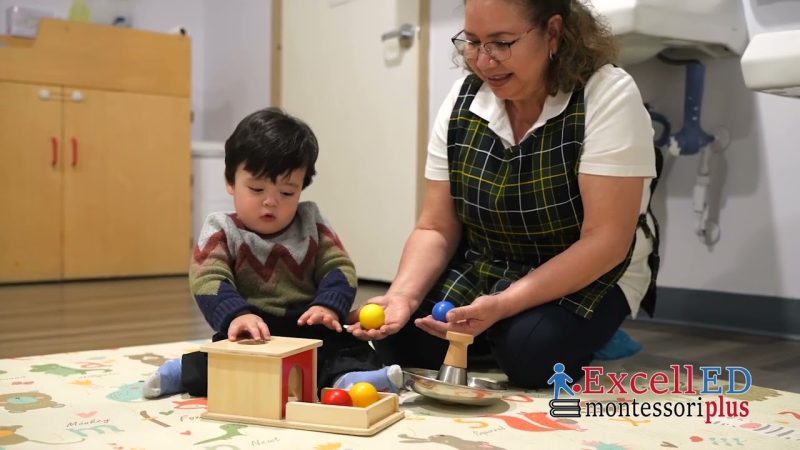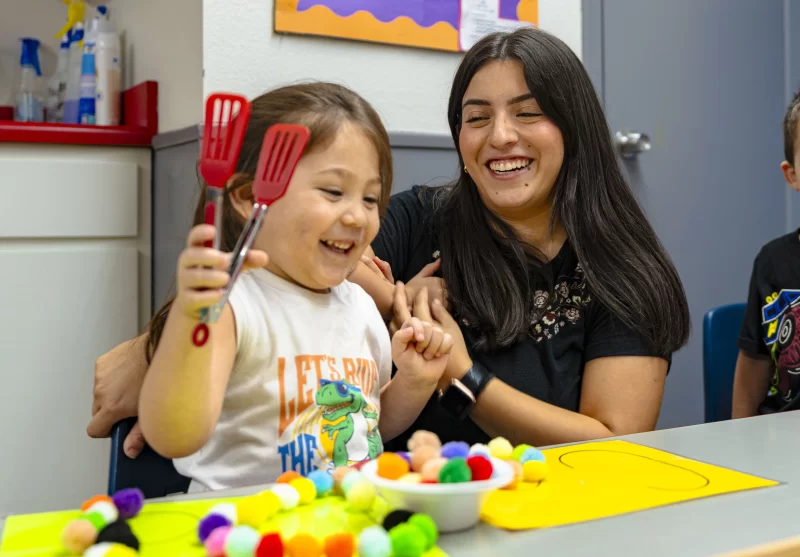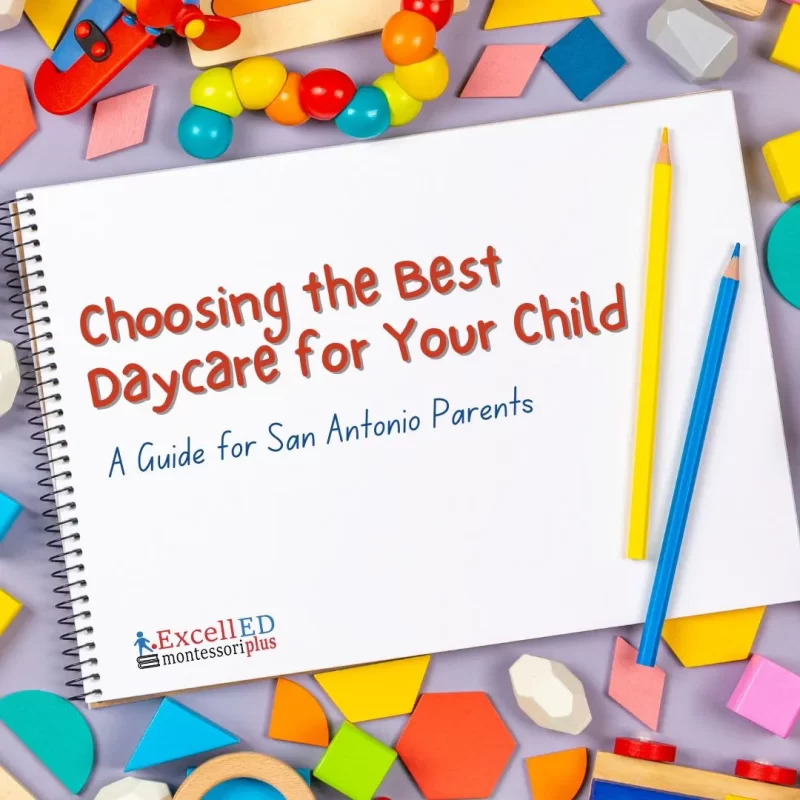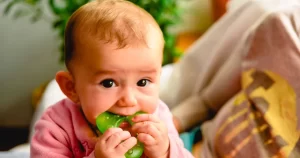
Biting in toddlers is a topic that many parents and educators find challenging and perplexing. Often met with surprise and concern, this behavior is a natural part of early childhood development. Understanding why toddlers bite and how to address it can ease the stress for parents and children alike.
“Biting is a typical behavior often seen in infants, toddlers, and 2-year olds. As children mature, gain self-control, and develop problem-solving skills, they usually outgrow this behavior.”
– National Association for the Education of Young Children (NAEYC)
Biting can stem from frustration, teething pain, a desire for attention, or simply exploring the world through their senses. Recognizing the commonality of this phase is the first step in navigating it with compassion and effectiveness.
This post will explore the underlying causes of biting, debunk myths, and provide practical strategies for managing this behavior. We aim to support you in guiding your little ones through their developmental journeys with understanding and patience. Let’s embark on this exploration together, turning a challenging phase into an opportunity for growth and learning.
For many toddlers, the biting stage is simply a temporary phase. As they learn to navigate social interactions, biting can sometimes serve as their way of communicating. However, for some children, biting may persist as a more chronic issue.
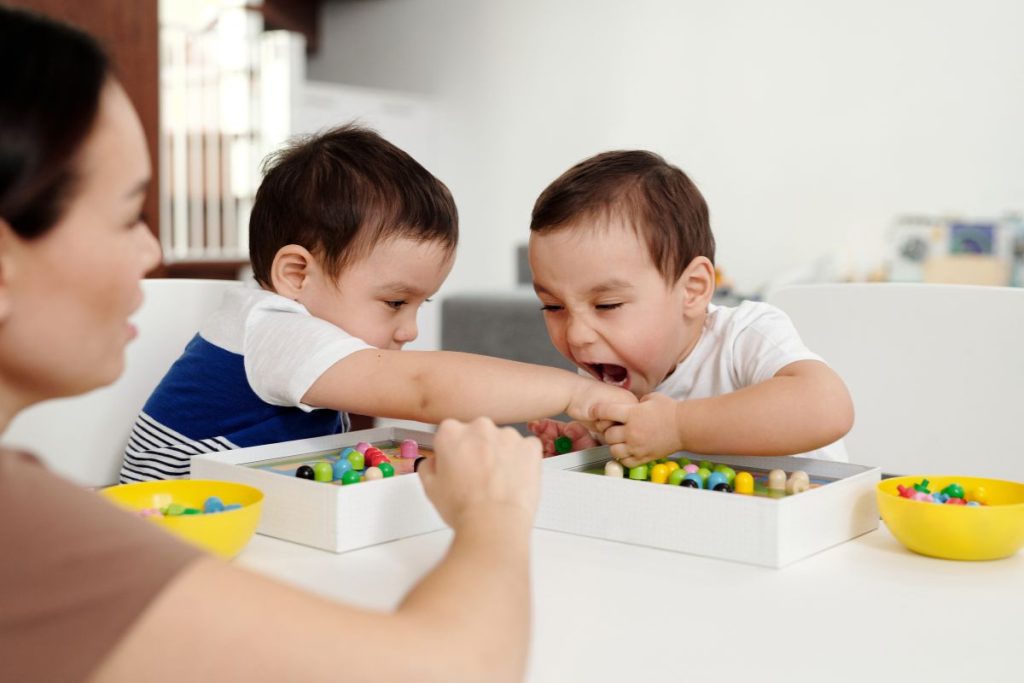
Why Might Our Little Ones Bite?
When addressing concerns about biting, it’s helpful to emphasize both the commonality of the behavior and the individual variations. Before they can verbally express their feelings, toddlers might resort to biting as a way to communicate. Issues such as teething pain, curiosity about the effects of biting, or a need for oral stimulation are common triggers. “They’re teething and looking for relief. They’re feeling frustrated about not being able to communicate their feelings verbally… They’re exploring — answering questions like, ‘What does biting feel like?’ and ‘What happens when I do it?'” (Cleveland Clinic)
- Teething Troubles: Sometimes, they just want to soothe those achy gums.
- Curiosity and Discovery: Our toddlers are like little scientists, and sometimes their experiments include using their mouths!
- Tiny Emotions, Big Impact: When they feel overwhelmed, excited, or really want that toy, they might not have the words yet and might express it through biting.
- Seeking Attention: If it leads to a strong reaction, they might just be testing the waters to see what happens next.
How We’re Navigating This Together
- Keeping a Watchful Eye: We’re always observing, especially when energy runs high or they’re a bit too tired.
- Gentle Reminders: If a biting incident happens, we ensure the little one who got bitten is okay and give a kind yet firm reminder to our curious biter about kind hands and gentle touches.
- Empowering Their Words: We’re helping them find their voice, teaching phrases like “I’m upset” or “I want a turn”.
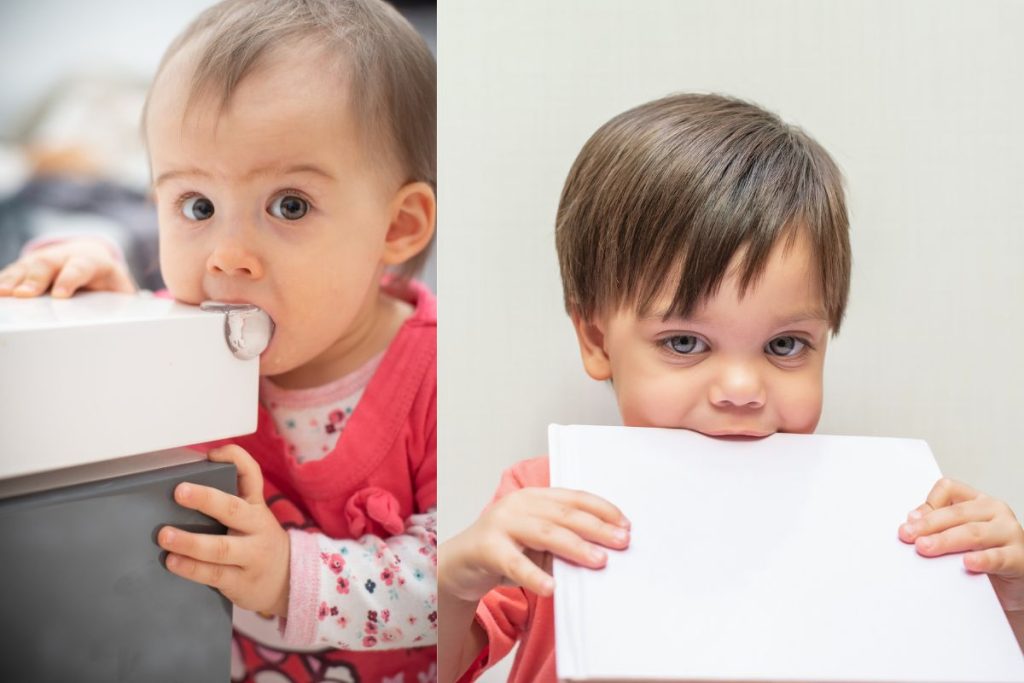
A Few Tips for Our Adventure at Home
- Deep Breaths: If a bite happens, taking a moment is okay. Reacting calmly can be key.
- Encourage Chatting: Even if it’s just a word or two, every phrase they learn is a step away from biting as communication.
- Teething Alternatives: If teething seems to be the culprit, having some cool, safe items for them to chew on can relieve them.
- Consistent Love: Keeping our reactions consistent at home and with us can help them learn faster.
Parent Resources
Here are some reliable parent resources that offer insights, strategies, and support around this behavior:
Books:
- “No Biting!: A Lift-the-Flap Book” by Karen Katz: A board book suitable for toddlers to teach them about alternatives to biting.
- “Teeth Are Not for Biting” by Elizabeth Verdick: A best-selling board book that gives reasons why toddlers might want to bite and offers simple redirection.
Websites:
- Zero to Three: A resource for parents offering insight into early childhood development. They have articles on biting and how to handle it.
- The American Academy of Pediatrics (AAP): They provide guidelines and articles on various child behaviors, including biting.
- American Psychological Association
Online Articles/Blogs:
- “Why Toddlers Bite, How to Handle It” from Parents Magazine.
- “How to Stop Your Toddler from Biting” on BabyCenter.
- Toddler aggression: When to worry about your toddler biting, according to a psychologist
Let’s remember, this too shall pass. These little moments are just blips on our grand journey of watching them grow. We cherish being on this adventure with you and appreciate your understanding and partnership.
Subscribe to Newsletter
Programs offered at ExcellED Montessori Plus include:
✔️Infants (10 Weeks – 18 Months)
✔️Toddlers (18 – 36 Months)
✔️Primary (3-6 Years)
✔️Kindergarten
✔️Mother’s Day Out
✔️Spanish Immersion / Dual Language
✔️After School Programs and Summer Camp (6 – 12 Years)
Music, Spanish, and Yoga are other programs included as part of the tuition.
Learn more about Inquiry-based Learning



